Here you will learn how to easily migrate VMware virtual machines to Hyper-V using Vinchin, which not only provides powerful backup and recovery features, but also supports migration from versions including VMware vSphere v8.0, v7.0, v6.x, v5.x, and the corresponding ESXi versions to Hyper-V environments running on Windows Server 2012 R2, 2016, 2019 on Microsoft Hyper-V or standalone Hyper-V environments in Microsoft Hyper-V 2012 R2, 2016, 2019 and Windows 10 desktop operating systems. With a few simple steps, you can achieve a seamless cross-platform migration that ensures data integrity and business continuity. Whether you are performing disaster recovery or optimizing your virtualization platform, Vinchin provides a stable migration solution.
Before you restore the VM on Hyper-V, you need to have a VMware VM backup.
Let's open a browser and log in Vinchin Backup server web console. Go to VM Backup > Restore page.
Step 1. Select Restore Point
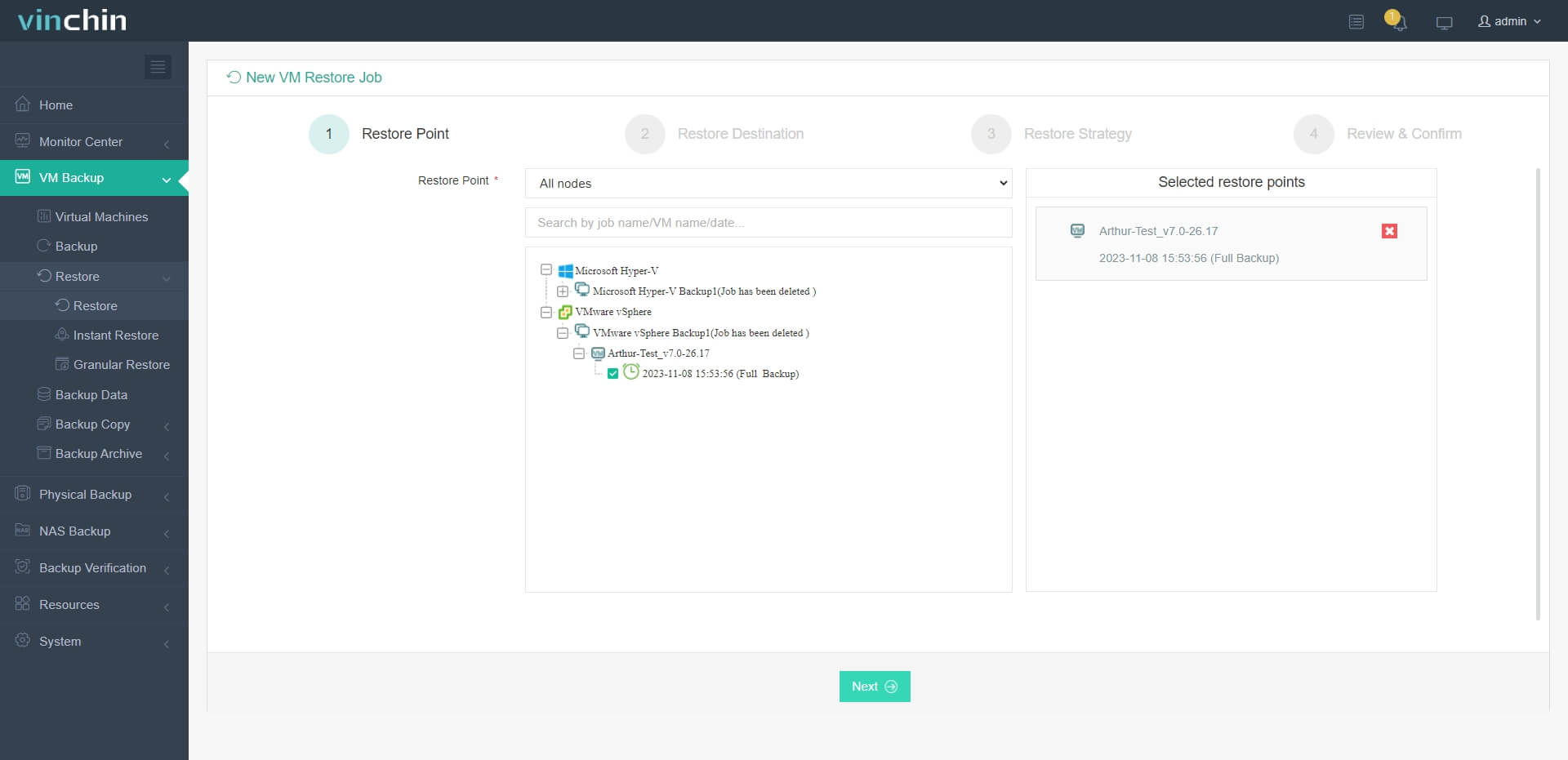
In the list, you can see all the available restore points. Just select the VMware restore point you want to restore, and click Next.
Step 2. Select Restore Destination
Select a Target Host where to run the restored VM. Here, you can simply configure the restored VM.
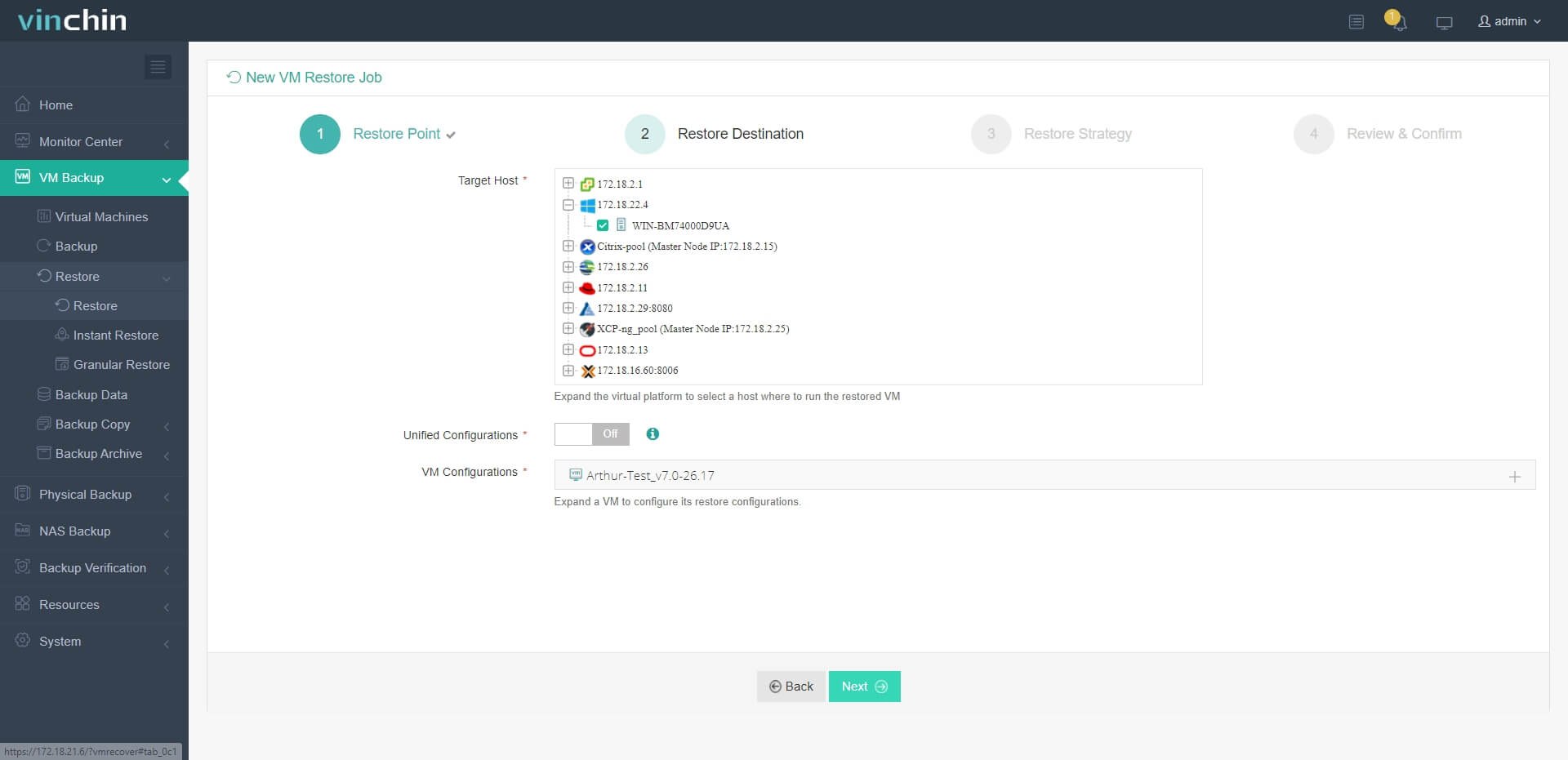
Here select the specific Hyper-V host and you can simply configure the new VM here, such as VM name, CPU, Memory, Virtual disk and Virtual Network. After configuration, click Next.
Step 3. Select Restore Strategies
In Schedule, you can choose Restore as Scheduled or Once-off Restore. Restore as scheduled will automatically restore the VMs at a specific time, and Once-off Restore will restore the VMs only once.
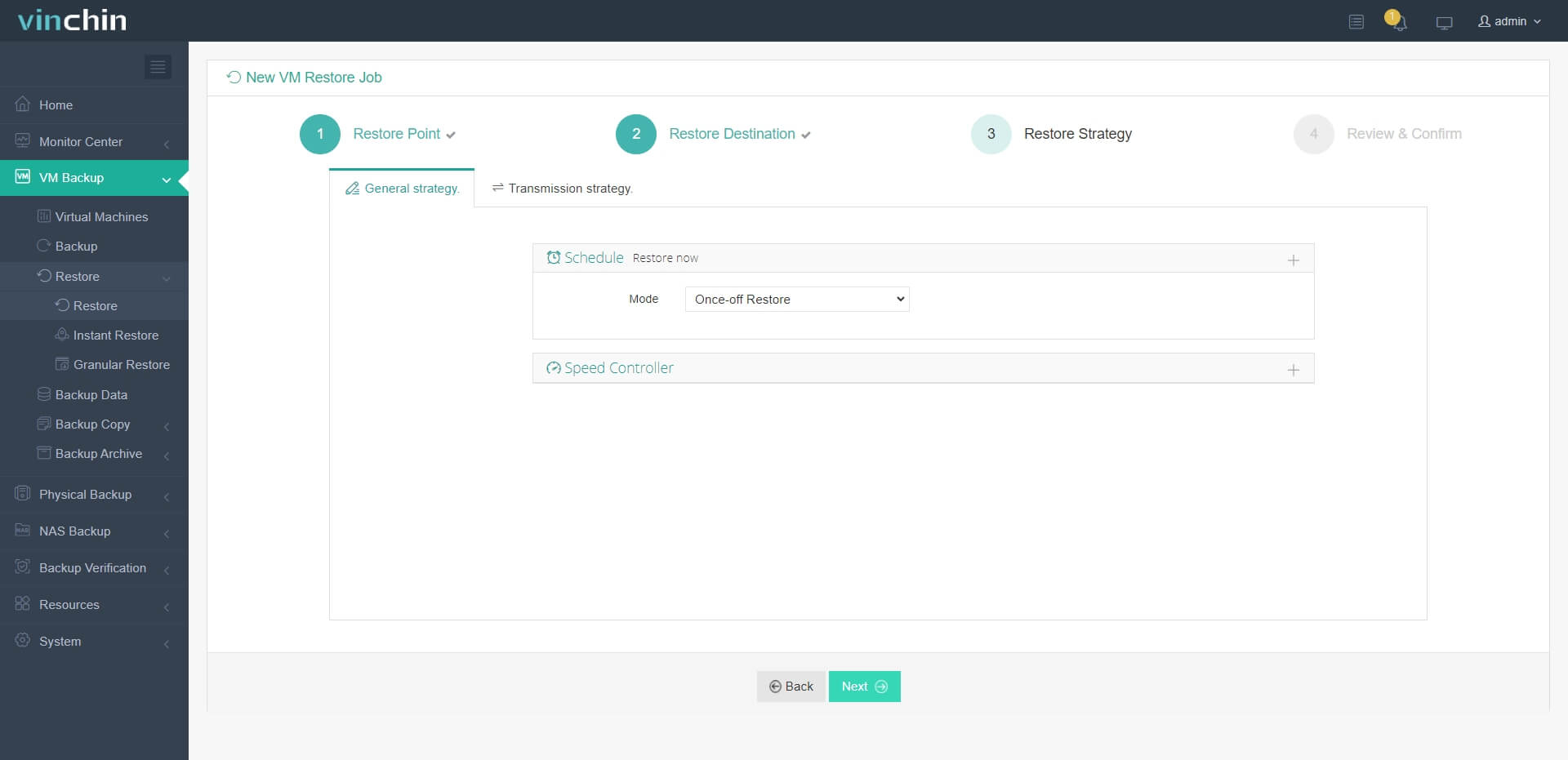
After configuring all recovery policies, click Next.
Step 4. Review and submit the job
Once the job is created, you'll be redirected to the job list page and the restore job will run now.
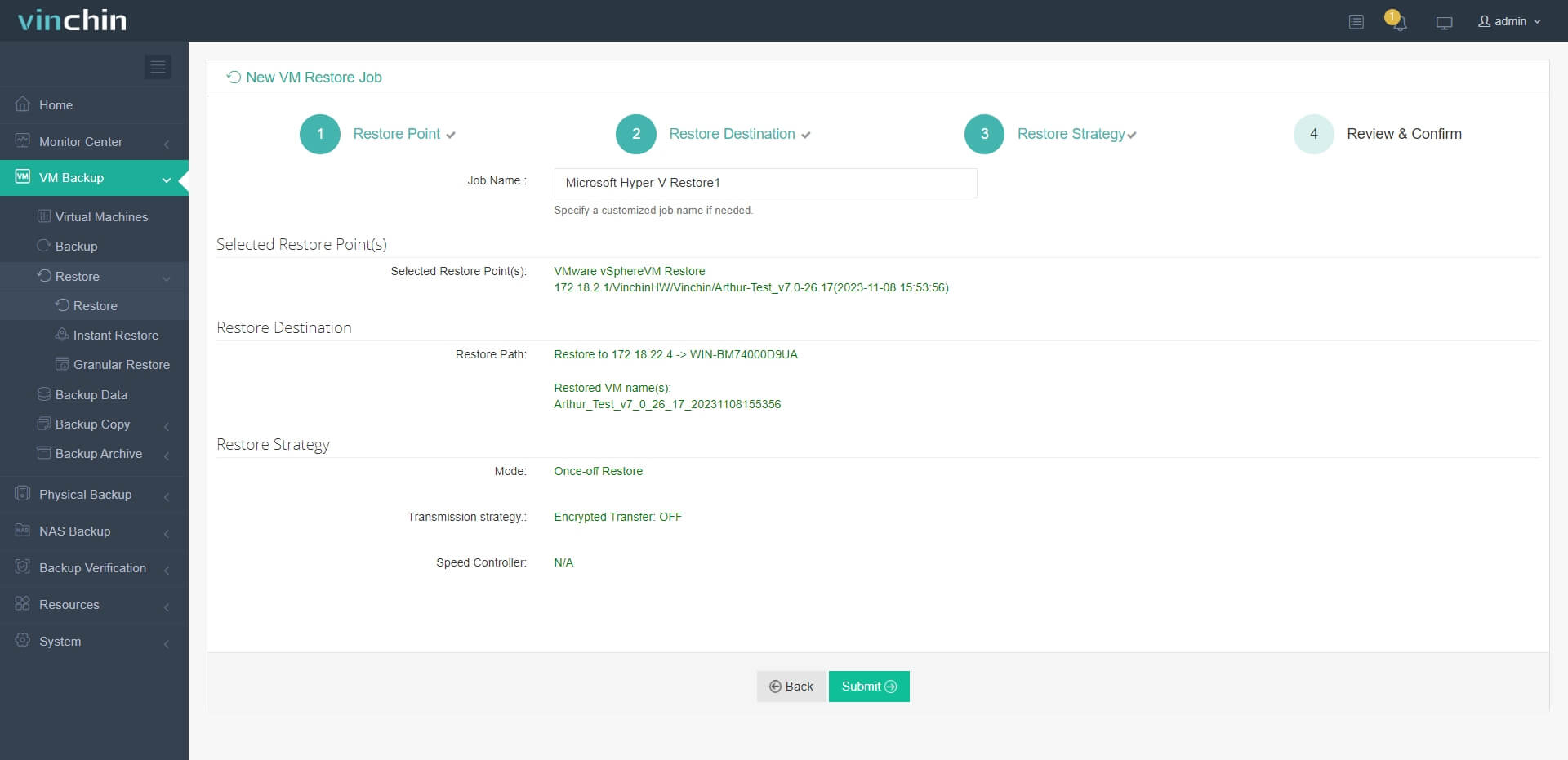
Click the job name to check the job progress. And the flow chart shows the real-time transmission speed and the bar under it is the job progress.
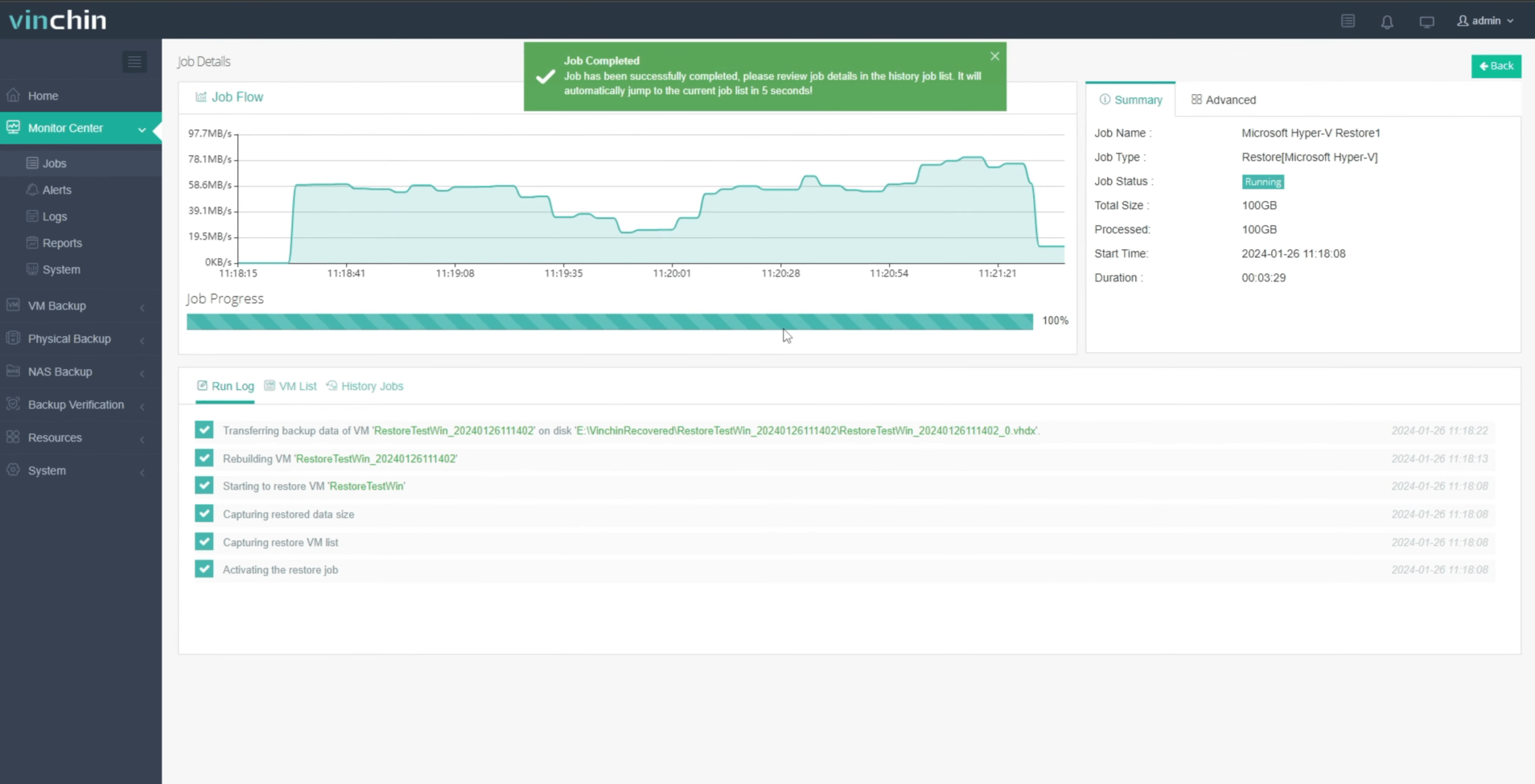
Here, you can see the VM has been successfully restored.
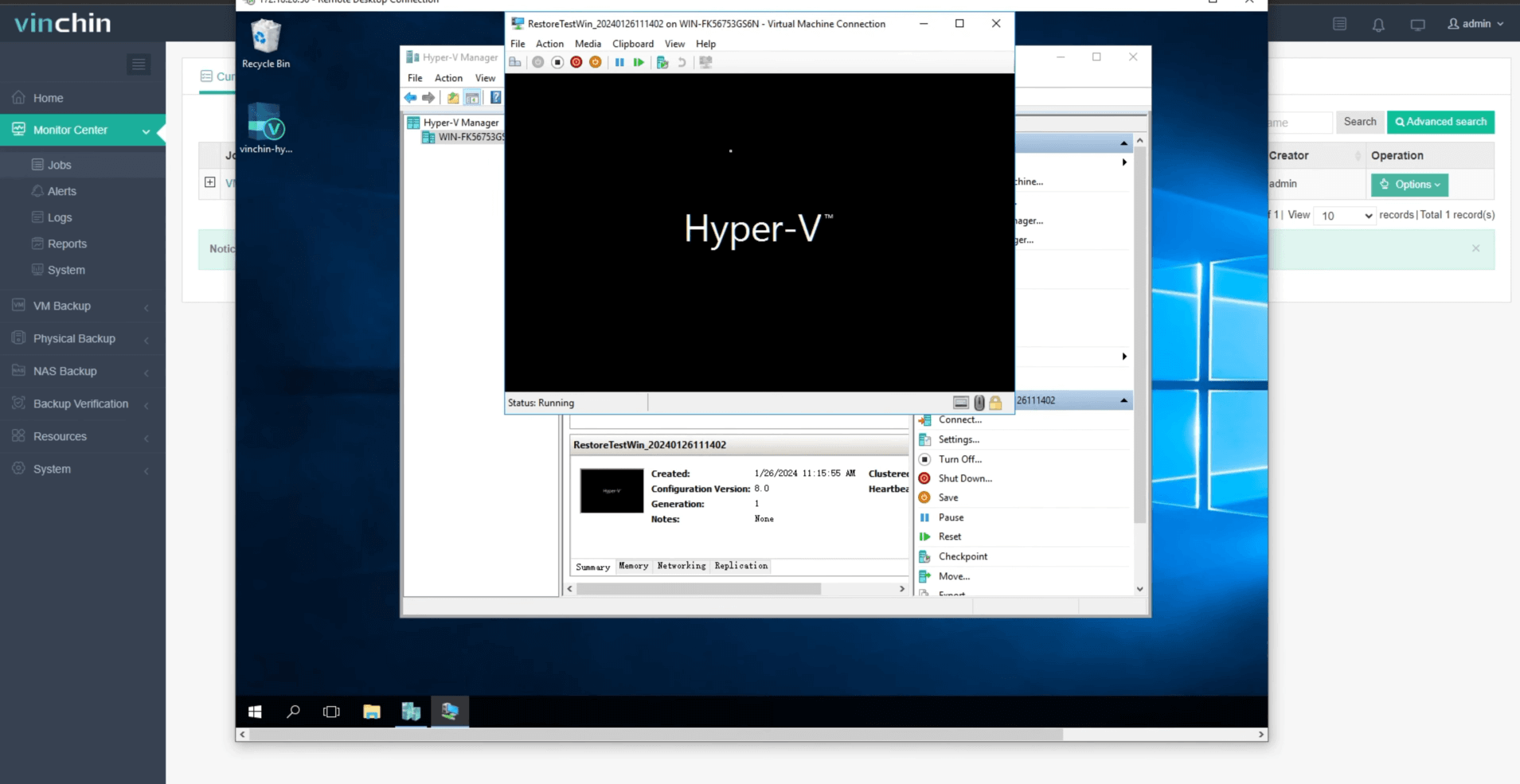
To make sure that everything went well, we are advised to check the new virtual machine in
Hyper-V Manager again. Here you can confirm that the migration from VMware to Proxmox has been successfully completed.
Vinchin is now offering a 60-day free trial of its protection service. You are welcome to experience our powerful and reliable service in your own environment. For more information or to get started, contact Vinchin directly or get in touch with one of our local partners. Take the first step towards greater data protection today!
Share on:







